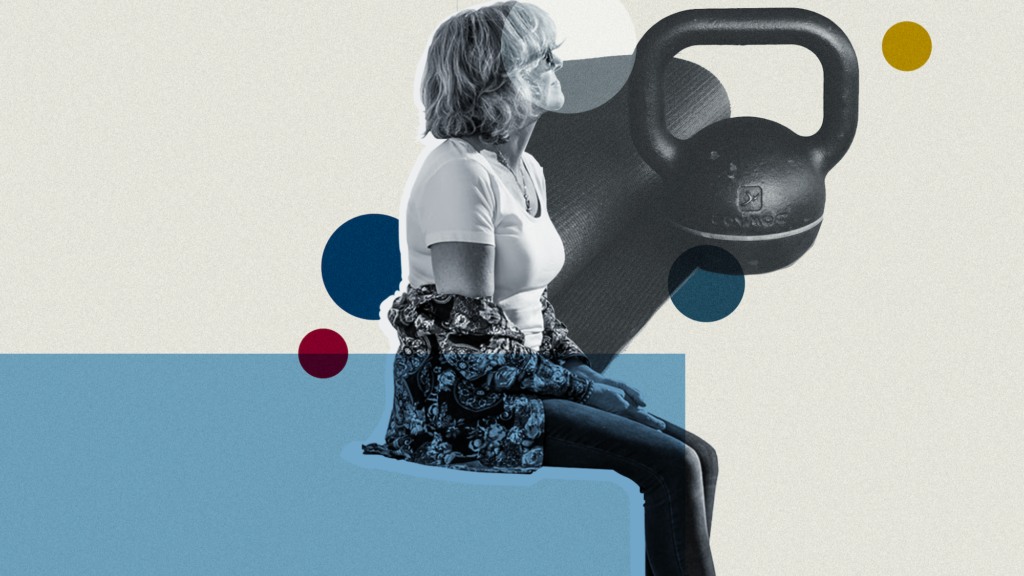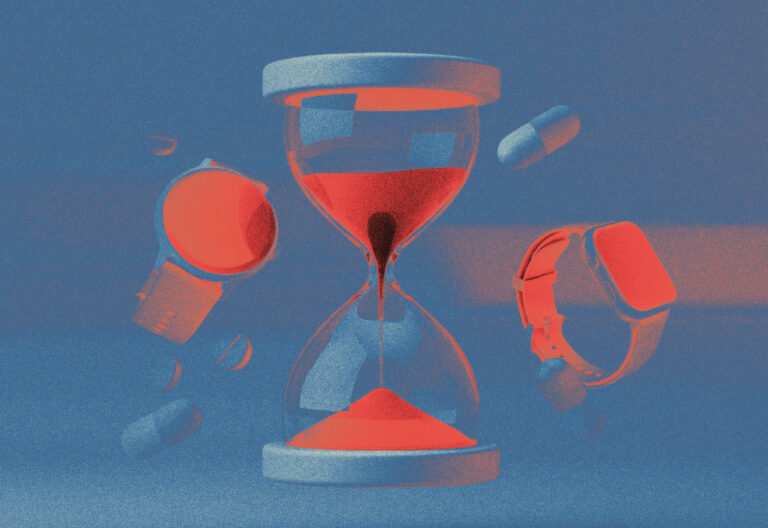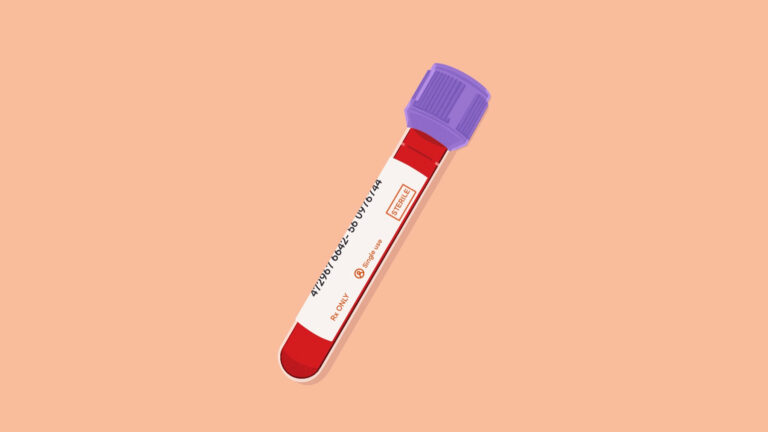Getting old isn’t what it used to be. And aging populations are rethinking well-being. But few brands, if any, cater to fitness and wellness for folks over 50 years old.
On the business front, this oversight is a missed opportunity. Worse, at the societal level, this omission will intensify the looming senior care crisis.
As America grows grayer by the day, older adults could use some help getting the hang of this health thing.
My Firsthand Experience
I pay close attention to the world of fitness and wellness. But even if I didn’t, it would be hard to ignore.
Peloton. Apple. lululemon. As a member of the highly coveted 18–34-year-old demographic, these companies have me in their crosshairs.
More specifically, they’re targeting HENRYs. Short for “high earner, not rich yet,” health-focused and direct-to-consumer brands clamor for this consumer. By and large, the industry’s makeup is a reflection of catering to this cohort.
The result? Everyone else gets overlooked. If not, they’re certainly an afterthought. And older adults are the prime example.
Take my mom, for instance. At 62 years old, she’s on a mission to get back in shape.
The good news: Early in the pandemic, she quit smoking and started walking. Now, she walks three to five miles most days. We also set her up with a bodyweight exercise routine and helped her eliminate processed foods from her diet.
So far, she has lost 20-ish pounds. More importantly, her mindset changed — she feels empowered.
The not-so-good news: Helping my mom navigate this journey was a lot of work. After failing to find a ready-made program that remotely resonated with her, we customized a regimen through trial and error. Fortunately, she stuck with it.
Still, it shouldn’t have been that difficult. And there’s a growing contingent that agrees.
Aging Up
The second-largest generation, there are some 72M US baby boomers between the 57–75 years old. Beyond Boomers, 35% of the US population is over 50 years old. And by 2030, all baby boomers will be over 65.
An unprecedented demographic shift with far-reaching implications, the aging up of older adults will reconfigure our society.
A topic we’ve previously covered, this upheaval is typically viewed through the lens of an eldercare crisis. But the counterpoint to this impending crisis is the fact that older adults want to live longer, healthier, happier lives.
And they have the means to pursue a healthier lifestyle.
- Baby boomers have 12x the net worth of millennials.
- 70% of US disposable income is owned by those over 55.
- US adults over 50 spent $7.6T, or 56 cents of every dollar, in 2018.
Still, companies continue to overlook aging populations — choosing instead to let an outdated stereotype of a frail, recliner-ridden Luddite represent all older adults. The reality paints a different picture.
Third Agers
According to Ken Dychtwald, psychologist, gerontologist, and CEO of consulting company Age Wave, growing old isn’t what it used to be.
Speaking to the NYT, Dychtwald explained how he breaks life into three 30-year stages. In the first stage, we grow up and seek a partner. In the second stage, we focus on family and career. But, the third stage is being redefined:
“This new Third Age is about reinvention of oneself… It’s about continuing to grow, learn, meet new people, try new things and even discover new purpose.”
More than ever, this reinvention includes embracing technology, prioritizing well-being, and seeking deeper fulfillment.
- 20% of Americans aged 50+ use a health-tracking wearable.
- 81% of US adults age 60–69 and 62% of those 70+ use a smartphone.
- 66% of baby boomers rank mental well-being as the top meaning of health.
The caveat, of course, is that older adults enter their third age increasingly unwell.
From consuming processed foods and forgoing exercise to diabetes, heart disease, and other chronic ailments, our lifespan may be increasing, but our healthspan is suffering. In 2019, Americans’ healthy life expectancy was 68.5 years out of a total average life expectancy of 78.7 years.
The root cause stretches well beyond baby boomers, but the question remains: Why isn’t the health of aging adults a priority?
Startups for Seniors
Although aging boomers aren’t fans of words like senior citizen or elderly, companies in this space market themselves as serving the stereotypical senior.
Looking closer, medical technology, assisted living, and healthcare-related innovation dominates the space — all of which are critical. But, hardly any companies champion a healthier lifestyle for older adults. Though, there are some that are promising.
Over the summer, Mighty Health raised $2.8M for its personal training and nutrition coaching app aimed at adults over 50. And just last week, Bold added $7M for its senior-focused fitness platform.
Taking a wellness-oriented approach, Rosita Longevity secured pre-seed funding last fall for its digital health coach. Related, while virtual physical therapy apps like Hinge Health (recently valued at $3B) find success selling to employers, boomers could benefit from a similar solution.
Helping foster community, Revel is a digital network of women 50 and over. A growing opportunity, digital communities for older adults is untapped.
On the nutrition front, Ritual offers multivitamins geared towards adults over 50. And Beyond Meat co-founder Brent Taylor launched Perennial, a line of plant-based shakes for the same demo. But there’s little in the way of science-backed nutritional products or programs.
As companies like hims, Ro, and Maven Clinic tailor their offerings to younger consumers, companies like Vault Health and Gennev have set their sights on older ones.
Looking Ahead
As it stands, 50-somethings and 65-plussers are largely ignored by fitness and wellness brands.
To be sure, from healthcare to food insecurity, there are bigger challenges to address. But, in many ways, regular exercise, proper nutrition, and cultivating deep relationships will lessen the burden.
Because, here’s the punchline: Aging isn’t an option. But how we choose to grow old can be. And we could sure use more help along the way.
🎙 On the Podcast
This week, on the Fitt Insider podcast, we’re joined by Brett Thomas, co-founder and managing partner of CAVU Venture Partners.
CAVU is a leading venture capital firm investing in better-for-you food and beverage brands, as well as companies across health and wellness.
In this episode, we discuss:
- How the firm is evolving to keep pace with the broadening definition of wellness
- The art, science, and luck in backing Beyond Meat, Vital Proteins, and others
- CAVU’s role in a new $225M SPAC targeting the health and wellness space
- Launching an in-house studio focused on design, branding, and marketing
Listen to the full episode here.
💪 Smart Strength
Cardio equipment and boutique-style classes dominate home fitness, but the strength category is bulking up.
By the numbers:
- During the pandemic, interest in home fitness equipment was up 500%.
- Last year, the global market for home fitness equipment reached $9.5B, a CAGR of 40% from ’19.
Flexing on the competition, Rogue Fitness leads the way in the strength space. When demand for dumbbells and kettlebells surged, Rogue scaled up. Now, as they (literally) forge their own path, connected fitness competitors are targeting strength training.
With some $200M in funding, Tonal initially cornered the market on smart strength. As Tonal CEO Aly Orady told us on the Fitt Insider podcast, personalization, sensors, and AI will transform strength training.
The growing list of entrants into the space are out to prove him right.
Weights. Tempo combines a Mirror-like screen and group classes with traditional elements of weight training. Similarly, FORME Life combines elements of Tonal and Mirror into one system. And JAXJOX created a connected weight set, including dumbbells and a kettlebell.
Resistance. Packing an entire gym into a single platform-like unit, ARENA, Virtuvian, and Exxentric use motor systems to generate resistance.
And more. NordicTrack’s Vault is a screen and strength training locker combination. Carbon Trainer uses sensors and a screen. And newly unveiled Oxefit is targeting strength as well as rehabilitation.
Looking Ahead. There will surely be others who enter the strength training, but Peloton is the $40B elephant in the room. It seems like a question of when, not if the cardio equipment maker will jump into the strength category.
🍄 The Shroom Boom
In Issue No. 84: Psychedelic Wellness, we explored the startups and investors hoping to bring psychedelics into the mainstream. A few months on, and the category is gaining traction in the public markets.
- Toronto, Canada-based MindMed has seen its stock surge going public last spring.
- The world’s first ETF devoted to psychedelic-drug companies recently began trading.
- ATAI Life Sciences, a Berlin-based biotech company backed by Peter Thiel, is expected to go public in 2021.
The green rush. Early on, the opportunity in psychedelics was conflated with the swarm of activity in the cannabis space. But operators in the psychedelics space are quick to shoot down that comparison.
Kevin O’Leary of Shark Tank fame is an early investor in MindMed. Speaking to Bloomberg, O’Leary said health therapies and research are the focus of psychedelics, not recreational sales.
Going a step further, MindMed co-CEO JR Rahn also told Bloomberg: “We could not be further from what the cannabis industry became.” Rahn sees psychedelics as a new asset class aiding in the urgent need for new and innovative mental health treatments. He expects pharmaceutical giants to seek partnerships in the sector.
📰 News & Notes
- Gut microbiome startups raised $1B last year.
- McKinsey: The new normal for sporting goods.
- MasterClass launched fitness and wellness courses.
- Google Pixel’s camera tracks heart and breathing rate.
- Peloton’s latest patent hints at “private sessions.” (h/t: @BobTreemore)
- Variis is now Equinox+. [Listen in: Our interview with Equinox Media CEO Jason LaRose]
- 2021 to be a “watershed year” for continuous glucose monitoring. [Reread: The Next Mainstream Wearable]
💰 Money Moves
- Oatly, maker of vegan food and drink products, is reported to be seeking a $10B value in its public offering.
- OxeFit, a strength-focused connected fitness company, raised $12.5M in Series A funding led by Lydia Partners, with participation from Dallas Cowboys quarterback Dak Prescott, former NFLers Jason Witten and Dez Bryant, and orthopedic surgeon Dr. James Andrews.
More from Fitt Insider: The Athlete VC - Former New York Yankees star Alex Rodriguez is starting a SPAC, filing to raise $500M for Slam Corp — targeting businesses in sports, media, entertainment, health and wellness, and consumer technology sectors.
More from Fitt Insider: The SPACs are Coming - Getaway, an outdoor- and wellness-focused hospitality company that offers mindful escapes to tiny cabins, secured $41.7M in Series C funding.
More from Fitt Insider: Wellness in the Great Outdoors - Sexual wellness brand Dame Products raised $4M in seed funding led by Listen, with participation from Chingona Ventures, The Community Fund, Her Capital, HP Reformation Ventures, IgniteXL Ventures, and Joyance Partners.
More from Fitt Insider: The Wellness Brands Erasing Stigmas - Bexson Biomedical, developers of a ketamine treatment platform for pain management and mental health disorders, secured $4.8M in Series A funding.
More from Fitt Insider: Confronting the Mental Health Crisis - Bold, a digital health startup creating senior-focused fitness programs, raised $7M in seed funding.
- beam, maker of THC-free CBD products, raised $5M in Series A funding from The Yard Ventures, Litani Ventures, and Freshly co-founder Carter Comstock.
- InnerHour, a Mumbai-based mental health company, secured $5.2M in Series A funding.
- French mental healthcare startup moka.care raised a $3M funding round.
- Frontier Nutrition, a Bangladesh-based maker of nutritional snacks, raised $6M in Series B funding.
- Food startup Tovala closed a $30M Series C for its smart oven and self-cook meal service.
More from Fitt Insider: What’s Next For Meal Kits - Evolve BioSystems, a probiotics company creating a healthy gut microbiome, raised $55M in Series D funding led by Cargill and Manna Tree.
- Barcelona-based Koa Health, a mental healthcare provider, raised $36M in Series A funding.
- Online grocery marketplace Good Eggs raised $100M in new funding.
- London-based Jack & Bry raises €1.4M ($1.69M) for its plant-based jackfruit ‘meat’ products.
- PeaTos, a pea-based snack brand, closed a $12.5M Series B investment led by Post Holdings Inc.
- Casana secured a $14M Series A to bring its heart sensor-equipped toilet seat to market.






